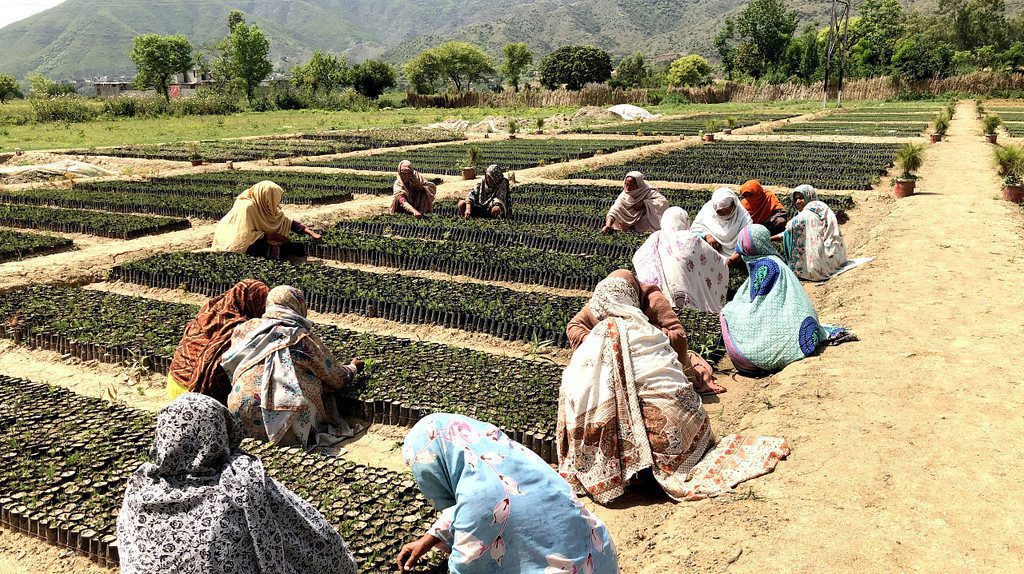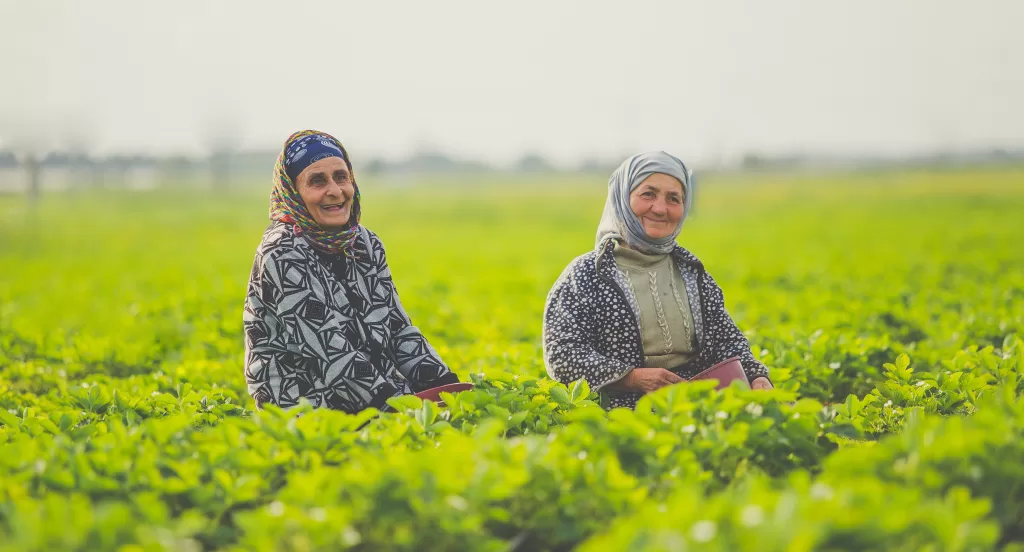Women have become unsung heroes in the middle of Pakistan’s agricultural landscape, significantly influencing the agricultural sector’s course. Their efforts, which have hitherto been overlooked and underappreciated, have been crucial in promoting resilience, accelerating innovation, and changing the agrarian economy.
Busting Preconceptions:
In Pakistan’s past, agriculture was thought to be a field dominated by men, with women only allowed to handle home duties. Nonetheless, a paradigm change has been observed in recent years as more women actively enter the agricultural field. Women all around the nation are defying gender stereotypes and actively participating in all aspects of farming, taking on careers outside the house.

Working in the fields is one important way that women support Pakistani agriculture. Women are involved in labor-intensive tasks that are essential to agricultural output, from planting seeds to harvesting crops. Women and men are often observed working together to cultivate a variety of crops in Punjab and Sindh, including cotton, sugarcane, and wheat.
Entrepreneurship and Agribusiness:
Beyond the confines of traditional vocations, Pakistani women are progressively launching their own businesses and making contributions to the agricultural industry as agri-entrepreneurs. An increase in women-owned farms, poultry companies, and dairy farms is indicative of this change. These women are creating economic growth in their communities and safeguarding their own lives by embracing new farming practices and expanding their agricultural operations.
Technology and Education Accessible:
More access to technology and knowledge is directly related to women’s empowerment in agriculture. Women are more capable of making educated decisions, putting sustainable farming techniques into practice, and increasing productivity when educational efforts centred around agricultural practices and technology are implemented. With the introduction of mobile technology, women farmers now have even more power as they can now access weather forecasts, market data, and best practices for farming.
Social Impact and Community Building:
Women in agriculture frequently have a significant impact on social impact and community development. Through joint efforts such as women-led agricultural cooperatives, they pool resources, expertise, and assistance. These cooperatives improve agricultural output and foster socioeconomic growth, which benefits not only individual women but entire communities.
Obstacles and Fortitude:
Women in agriculture confront a number of obstacles despite their enormous contributions, such as restricted access to resources, unequal land rights, and insufficient funding. But as they get over these challenges, their tenacity comes through, showing that they’re determined to shatter down boundaries and make significant contributions to the agriculture industry.

The Pakistani government has launched a number of initiatives to support and develop women farmers in recognition of the critical role that they play in the agricultural industry. These programmes include lending facilities, training, and advocating for laws that level the playing field for women and men in the agriculture industry. NGOs and advocacy groups are also putting out a lot of effort to support the rights of women in agriculture and to raise the voices of these women.
Pakistani women who work in agriculture are not just contributors; they are also innovators who are reshaping the country’s agricultural environment. There is no denying that women in agriculture are having a revolutionary impact as they access education and technology, challenge conventional gender roles, and create resilient communities. Their contributions are essential for both economic expansion and food security, and they also open the door for Pakistan’s agriculture to become more inclusive and sustainable in the future.



















